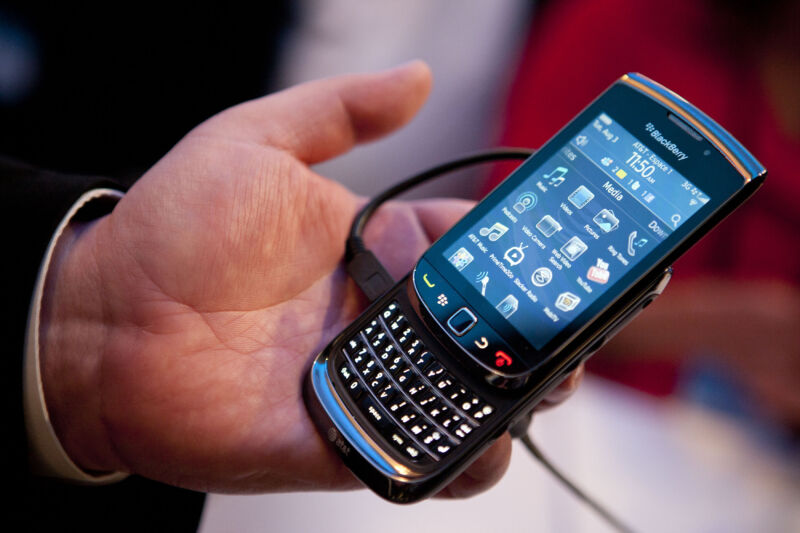
BlackBerry is adding another sad chapter to the downfall of its smartphone business. Today, the company announced a sale of its prized patent portfolio for $600 million. The buyer is “Catapult IP Innovations Inc.,” a new company BlackBerry describes as “a special purpose vehicle formed to acquire the BlackBerry patent assets.”
BlackBerry says the patents are for “mobile devices, messaging and wireless networking.” These are the patents surrounding BlackBerry’s phones, QWERTY keyboards, and BlackBerry Messenger (BBM). BlackBerry most recently weaponized these patents (which covered ideas like muting a message thread and displaying notifications as a numeric icon badge) against Facebook Messenger in 2018. That was nothing new for BlackBerry, which is a veteran of the original smartphone patent wars. Back when BlackBerry was still called RIM, it went after companies like Handspring and Good Technology in the early 2000s.
If the name “Catapult IP Innovations” didn’t give it away, weaponizing BlackBerry patents is the most obvious outcome of this deal. According to the press release, Catapult’s funding for the $600 million deal is just a $450 million loan, which will immediately be given to BlackBerry in cash. The remaining $150 million is a promissory note with the first payment due in three years. That means Catapult is now a new company with a huge amount of debt, no products, and no cash flow. Assuming the plan isn’t to instantly go bankrupt, Catapult needs to start monetizing BlackBerry’s patents somehow, which presumably means suing everyone it believes is in violation of its newly acquired assets.
Along with Windows Mobile and Nokia, BlackBerry was one of the big players in mobile before the iPhone upended the entire market in 2007. BlackBerry didn’t fully revamp its OS in response until 2013 with the touch-focused BlackBerry 10 OS, but by then it was way, way too late. The company gave up on BlackBerry OS development in 2015 when it launched its first Android phone, the BlackBerry Priv. The next year, BlackBerry gave up on phone hardware development, too, when it quit the smartphone business entirely. The remaining diehard users still on BlackBerry OS devices lost access to BlackBerry’s servers at the start of 2022.
That brings us to the era of “Zombie BlackBerry,” in which the dead phone brand licenses out its name to various third parties who try to relive the glory days. The first was TCL, which sold some “BlackBerry” hardware QWERTY phones and some shamelessly rebranded slab phones. TCL stuck with this plan from 2016 to 2020, when it passed on the chance to renew the licensing deal. Later that year, a company called “OnwardMobility” picked up the BlackBerry brand and promised to launch a phone in 2021, but that effort was delayed into the next year.
BlackBerry’s main businesses today revolve around car infotainment—where its QNX operating system is a popular option for car manufacturers—and enterprise security.
